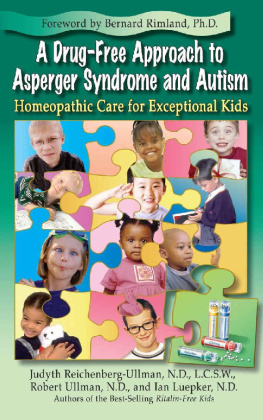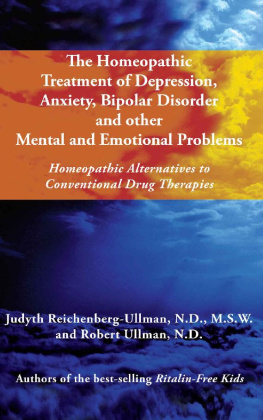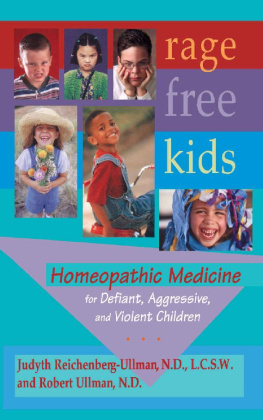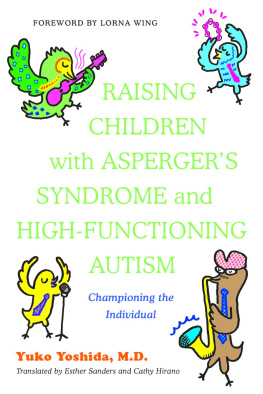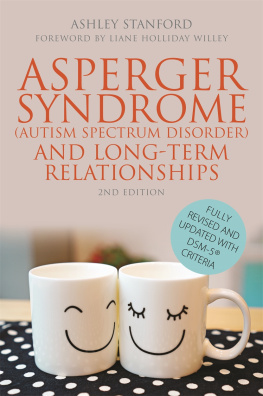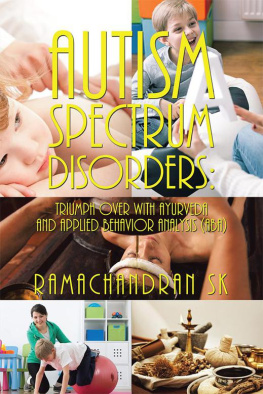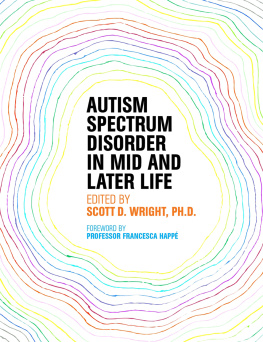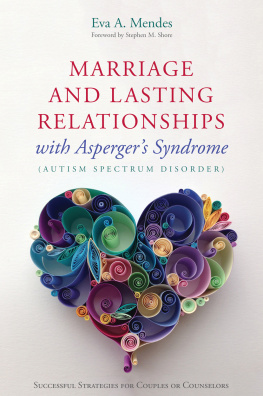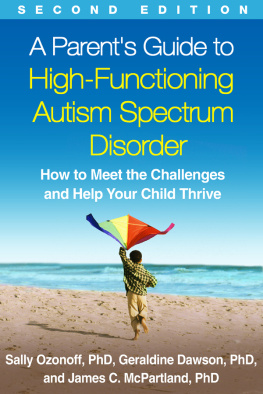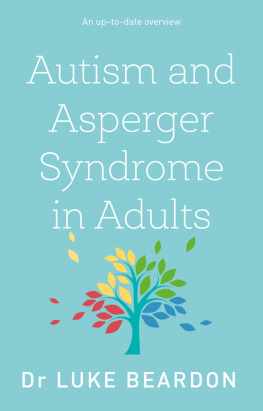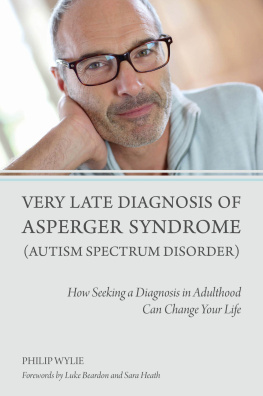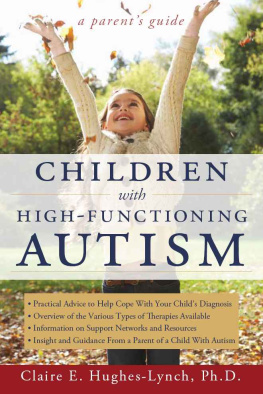ALSO BY THE AUTHORS
Ritalin-Free Kids
Rage-Free Kids
Homeopathic Self-Care
Whole Woman Homeopathy
The Patients Guide to Homeopathic Medicine
The Savvy Travelers Guide to Homeopathy and Natural Medicine
The Homeopathic Treatment of Depression, Anxiety and Bipolar Disorder
Mystics, Masters, Saints, and Sages

Copyright 2005, Electronic edition, 2014 by Judyth Reichenberg-Ullman, Robert Ullman and Ian Luepker.
All rights reserved. No portion of this book, except for brief review, may be reproduced, stored in a retrieval system, or transmitted in any form or by any means electronic, mechanical, photocopying, recording or otherwise without the written permission of the publisher. For information contact Picnic Point Press.
This book is intended for education purposes only. It is not intended to diagnose, treat, or give medical advice for a specific condition, or to in any way replace the services of a qualified medical practitioner. The cases in this book are true stories from the authors clinical practice. The names of the patents have been changed to protect confidentiality.
Electronic Edition ISBN: 978-1-940057-01-9
Published by:
Picnic Point Press
123 4th Avenue, N.
Edmonds, WA 98020
425-774-5599
www.healthyhomeopathy.com
Digital Conversion: New Delhi, India
Table of Contents
We dedicate this book to Angela
and to all others who follow their
grand passion with heart and in truth.
Foreword
Homeopathy is becoming increasingly well-accepted in the United States, as it has been in Europe for many years. A major reason for the upsurge in the popularity of homeopathy is the rapidly diminishing respect for conventional, traditional, establishment medicine. The concept behind homeopathy contrasts sharply with the assumptions of conventional American medicine.
Homeopathy embodies the idea that many of the symptoms of disease are actually manifestations of the bodys attempts to heal itself. The homeopathic doctor sees his or her role as facilitating these efforts of the body to heal itself by administering medicines or remedies which will stimulate and augment the symptoms. Conventional U.S. medicine, also known as allopathic medicine, takes the opposite view-it assumes that if you give drugs which fight the symptoms rather than enhance them, the disease will disappear. Both of these competing theories, homeopathy and allopathy, have a certain amount of plausibility. The debate between advocates and practitioners of both sides has gone on for centuries.
Why, in recent years, has homeopathy suddenly become ascendant at the expense of allopathy? There are no doubt many answers to that question, but in my opinion the most important of those reasons is that as medical record keeping has become more bureaucratized, computerized and more accurate, it has become increasingly apparent that allopathys use of drugs carries with it a terrible penalty in terms of sickness, death and malpractice insurance costs. The pharmaceutical companies which manufacture the drugs used by allopathic physicians have become billion-dollar behemoths, perhaps the most profitable industry in the world. The pharmaceutical companies have more lobbyists in Washington, D.C. than there are congressmen and senators. Despite the hundreds of millions of dollars spent on lobbying, on public relations campaigns and on advertisements for various drugs, the public has been learning, especially in the past year or two, that prescription drugs are neither as beneficial as they are claimed to be, nor anywhere as safe as one would hope they should be. An estimated 160,000 people a year in the U.S. die as a result of adverse drug reactions, and several million are severely injured.
Elsewhere I have characterized traditional medicine-allopathy-as an attempt (a misguided attempt) to bring about health through the administration of sublethal doses of toxic substances. Strange, but true. All too often the doses turn out to be lethal rather than sublethal. I especially like the title of this book: A Drug-Free Approach. The allopathic drugs which are routinely used to treat autistic children can produce a horrific array of adverse reactions.
Homeopathy is rapidly rising in popularity for a number of reasons, which include: 1. Safety-serious adverse reactions, especially death, are virtually unheard of with the use of homeopathic remedies. 2. Homeopathy is far more cognizant of the individuality of the patient it embraces the concept that there is no such entity as a disease, only an interaction between a disease process and an individual patient. 3. Homeopathy recognizes and appreciates the fact-and it is a fact-that the body is far better informed and far wiser than any or all of us. Helping the body heal itself makes sense, in many ways.
The authors of this long-awaited book have a wealth of experience using the principles of homeopathy to treat patients on the autism spectrum. I am pleased indeed that they have elected to share their experiences with us by writing this book.
Bernard Rimland, Ph.D
Founder and Director
Autism Research Institute
San Diego, California
Acknowledgment
We respectfully thank Bernard Rimland, Ph.D., a pioneer in the field of autism, for taking time out of his busy schedule to write the foreword. The multi-talented Lynn Willeford produced an astute, and remarkably rapid, copy edit. We were fortunate to work with Ann Amberg, who did a great job on internal book design, typesetting, and indexing. We thank Pat Rasch for an eye-catching and compelling cover. We express our appreciation to Diane Twachtman-Cullen, Ph.D for her invaluable edit of our first draft. Our gratitude to Libby Urner, experienced editor, as well as mom of a son with AS, who has responded very favorably to homeopathy, for a generous first edit. Our special thanks to Jan Maxon, special education teacher, mother of two children whose cases appear in this book, and who is an ardent and vocal supporter of our work with children on the spectrum.
Above all, we cannot praise highly enough, our remarkable office staff without whose help we never could have treated these children, and who have offered ongoing help and encouragement to their parents and to us. They also make our office a great place to work and a lot of fun! Lastly, we offer biscuits to all our golden retriever mascots, who have showered us, our staff, and our patients with gentle affection and unconditional love.
Introduction
Holding Hope for a Better Answer to Help Your Child with ASD
If you are a parent of a child with Asperger Syndrome (AS) or some other autism spectrum disorder (ASD), you have probably read enough books on the subject to fill a small library. You may have visited countless web sites, chatted personally or online with dozens of supportive parents, and tried more diets, supplements, various therapies and medications than you could have imagined. You may know more about ASD and related diagnoses than many doctors. The myriad of abbreviations- ASD, AS, ADHD, OCD, ODD, SPD, BPD, and so on (see Glossary)-may seem like an endless array of labels, none of which adequately fits your child. Perhaps you have grown tired of experimenting with one pharmaceutical drug after another, including stimulants, antidepressants, anti-anxiety medications, anticipations, and antipsychotics. Perhaps you found them to be either ineffective for treating the core symptoms of ASD or rife with unwanted side effects. Or you may simply not feel comfortable giving your child psychiatric medications.

